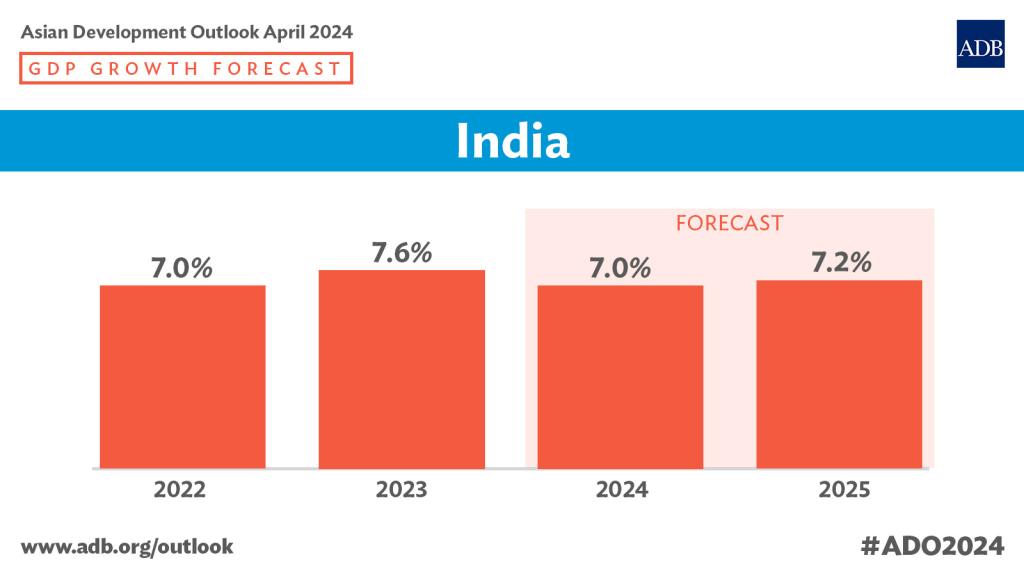He’s Big in Japan, but at 93, can Buffett become Awesome in India?

Via Getty
Known affectionately as the Oracle of Omaha, and lauded as the greatest investor since Hannibal saw an elephant and said “I’ll take 37”.
Berkshire Hathaway chair, Warren Buffett says that the Indian market remains “unexplored” for Buffett-like gems, which his giant conglomerate would undoubtedly explore “in the future”.
In fact, when it comes to opportunities to invest in India, the Oracle of Omaha said there were “loads”.
The human stock-picking juggernaut that is W Buffett doubled down last year on his Japanese gamble which began back in 2020, upping his stakes in his Japanese holdings and almost certainly providing further ballast at a time when the steady rise of Japan’s stock market was beginning to form the equity ride equivalence of that cool tsunami shaped painting.
At the behest of his 2IC, Charlie Munger, Berkshire went in with big bets on Japan’s five giant sogo shosha companies for big gains (and which, in alphabetical order are: Itochu, Marubeni, Mitsubishi, Mitsui and Co and Sumitomo.)
Interest in India?
That’s not news to Abhishek Poddar, India country head, Macquarie Group MD, Real Assets, Macquarie Asset Management, who said last month that India’s economy has strong fundamentals with scope to grow.
“Economic and demographic fundamentals are strong. India’s projected real GDP in 2023 sits at 6.3 per cent, with growth fuelled by domestic consumption and investments.”
By June, the Hindu nationalist Narendra Modi is expected to be happily ensconced for a third term as India’s PM,
His India is an experimentation in how to get richer in a polarised global world with a strongman in charge.
Whether it can grow fast and avoid unrest over the next 10-20 years will shape the fate of 1.4bn people and the world economy.
As the Economist observed in April:
“The electoral success of this tea-seller’s son reflects his political skill, the potency of his Hindu-nationalist ideology and his erosion of democratic institutions. But it also reflects a sense among ordinary voters and elites that he is bringing India prosperity and power.”
S&P Global Ratings anticipates India will remain the fastest-growing major economy for the next three years, and by 2030 will be the world’s third-largest economy.
Last month, the Asian Development Bank (ADB) upgrades India’s gross domestic product (GDP) growth forecast for fiscal year (FY) 2024 ending on 31 March 2025 from 6.7% to 7% and 7.2% in FY2025.
“Driven by robust public and private investment and strong services sector,” the bank reported.

Right now India is the world’s fastest-growing mega nation – gross domestic product is accelerating, noe slowing, at an annual rate of 6-7%.
Fresh data has private-sector confidence at near 15-year highs. Its stock market is the world’s fourth most-valuable, while the aviation market ranks third.
“Yet as a measure of its untapped growth potential, India’s GDP per head (at purchasing power) still sits at just 40 per cent of China’s current level.”
Already the world’s No 5 economy, it may actually rank third as soon as 2027, after America and China.
India’s pull is showing up in unexpected ways, too. Elon Musk is figuring out how to get in there, while forward-looking US firms already have some 1.5mn expats in India.
That’s more than in any other foreign country.
Right time, right place
For ASX-related investors, the healthy rise of 17% in central government capital expenditure under Modi in FY2024 compared to FY23, together with transfers to state governments will also likely privide a big boost to infrastructure investment.
Abhishek says the nation’s demographic profile is favourable too.
“At 28 years old, the Indian population’s median age is a decade less than in the US, while its share of working age population sits at 67 per cent, higher than China or Brazil. Disposable incomes have risen by 15 per cent.”
This year India’s equity markets are now the fourth largest in the world, overtaking Hong Kong’s, as investors flee that den of inequity to Asia’s handily located fast-growing alternative to a China which appears to have frightened FDI (foreign direct investment) and overseas money into silence.
Considring the opportunity at Berkshire Hathaway Inc.’s annual meeting, the legendary investor and chairman said his firm could find “unexplored or unattended” areas to invest in the country.
Buffett’s remarks came at Berkshire’s annual meeting over the weekend.
“It is a very good question. I am sure there are loads of opportunities in countries like India,” he said in response to whether the investment giant had plans to follow other investors and fund managers over the last few years as capital seeks further afield for traction.
According to Bain and Co, India’s venture capital landscape matured last year, as ‘resilience accompanied challenges to shape the investment narrative’.
The moderation of venture capital (VC) funding in India (from US$25.7 billion to $9.6 billion over 2022–23) pretty much mirrored global caution on risk capital.
But despite the decline in deal flow, India maintained its status as the second-largest destination for VC and growth funding in Asia-Pacific.
“The question is do we have any advantage, in either insights into those businesses or contacts that will make possible some transaction that parties in India would particularly want us to participate,” Buffett says.
That said, Buffett admitted that Berkshire’s recent adventurous experience investing big in Japan has been “fascinating.”
Here they come…
India’s stock market has delivered high returns for investors in recent years, and headline investors like JPMorgan Chase & Co. boss Jamie Dimon have sung the praises of an Indian dominated investment horizon.
Private equity has also ramped up their investments in India, as wealth managers boost their talent pool there.
“We’re seeing lots of interest across a variety of investors,” Macquarie’s Poddar says. “Many fund managers that have never been to India are now making the trip here to better understand it”.
Poddar believes the days when India’s viability as an investment destination were questioned are over.
“India is now standing in a good position to attract foreign capital.”
Case in point: Renewables
Delhi’s stated goal is to pursue net zero emissions by 2070, yet it remains reliant on coal for 70 per cent of its electricity output, according to Poddar.
Annual CO2 emissions stand at 2.44 billion tonnes per year, the world’s third-highest behind China and the US.
“As an interim target, the government aims to extract 90 per cent of its energy from renewable sources by 2047 – the year India marks 100 years of independence.”
As the country heads into election season, India continues to attract foreign investors, who have a number of ways to invest in the country.
Buffett said Berkshire is watching for an “unattended opportunity” and that may follow as the market regulator begins winding back obstacles for FDI.
“There may be an unexplored or an unattended opportunity…but that may be something in the future,” he said about India.
To invest in shares of India’s listed companies, foreign investors have to use the foreign portfolio investment (FPI) route. Investors, whether individuals or firms, need to be registered with country’s markets regulator and adhere to its disclosure requirements.
Most of the 10,800 FPIs are funds.
However, India’s market regulator, the Securities and Exchange Board of India (SEBI), has made it easier for Non-Resident Indians (NRIs) to invest in Indian markets.
Sebi has now allowed Foreign Portfolio Investors (FPIs) established in GIFT City to accept unlimited investments from Non-Resident Indians (NRIs) and Persons of Indian Origin (PIOs).
This opens doors for greater participation from the Indian diaspora in Indian markets.
Previously, NRIs and Overseas Citizens of India (OCIs) could only invest up to 50% in an FPI.
Now: NRIs can own up to 100% of a global fund set up at GIFT City, a special economic zone in Gujarat.
But at 93 years young and no longer with his long time partner Charlie Munger at his side, Mr Buffett said he’d be leaving the decisions on where Berkshire invests to future management.
Buffett said the question is if Berkshire has some kind of advantage in pursuing those unattended opportunities, particularly against people who are managing other people’s money and getting paid based on assets.
UNLOCK INSIGHTS
Discover the untold stories of emerging ASX stocks.
Daily news and expert analysis, it's free to subscribe.
By proceeding, you confirm you understand that we handle personal information in accordance with our Privacy Policy.








